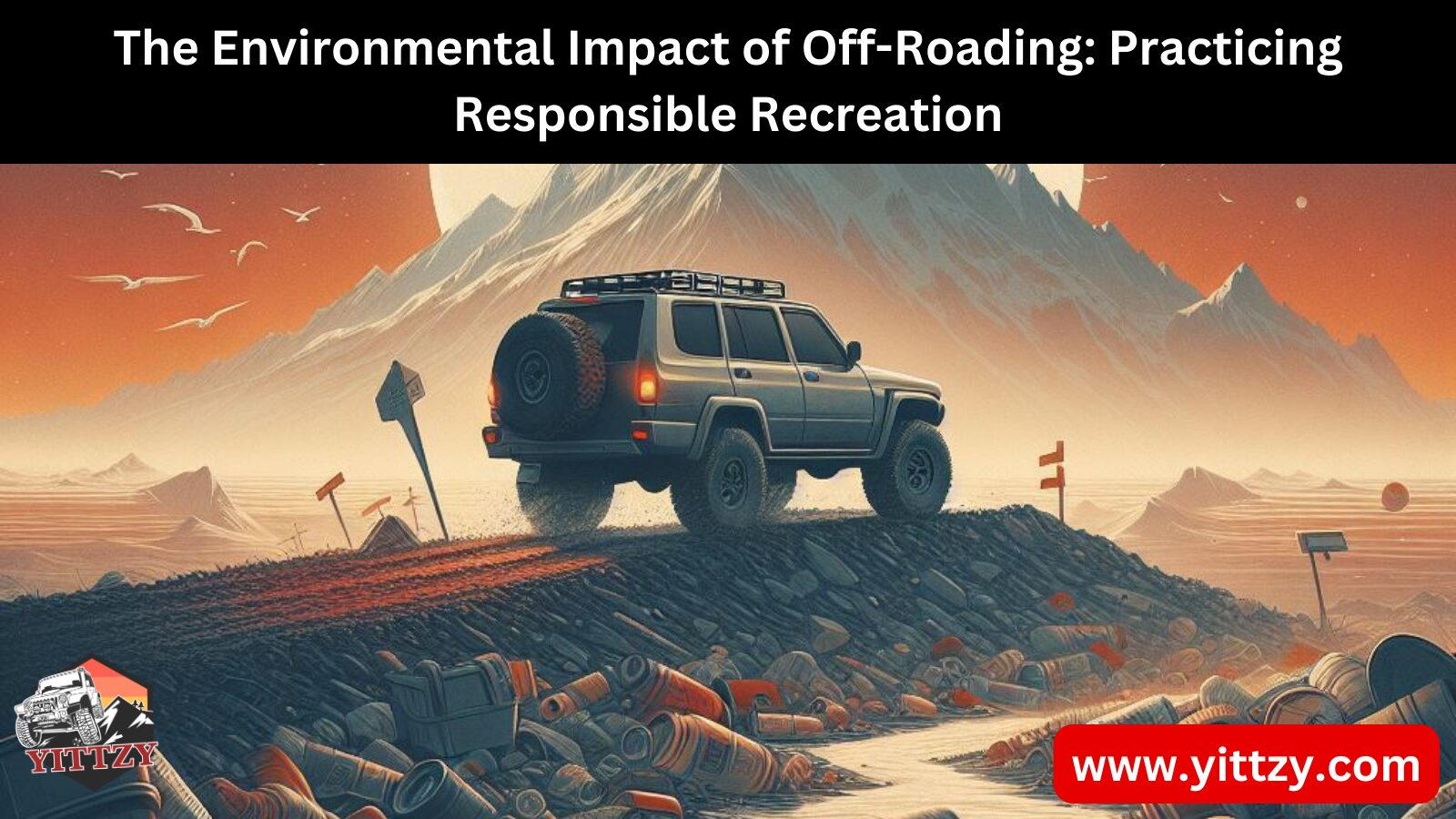
Introduction: The Environmental Impact of Off-Roading
Today, we will discuss “The Environmental Impact of Off-Roading: Practicing Responsible Recreation.” Off-roading, the activity of driving or riding a vehicle on unsurfaced roads or tracks, made of materials such as sand and gravel, riverbeds, mud, snow, rocks, and other natural terrains, is a popular pastime for many. However, it’s crucial to understand its environmental impact and how we can enjoy this thrilling activity responsibly.
The Environmental Impact of Off-Roading
Off-roading can have several environmental impacts. These include soil erosion, damage to vegetation, disturbance to wildlife, and water pollution.
1. Soil Erosion
Off-road vehicles can cause soil erosion by loosening the soil and exposing it to wind and water. This can lead to the degradation of trails and the surrounding environment.
2. Damage to Vegetation
Driving off-road vehicles off designated trails can damage vegetation, leading to habitat loss for wildlife. It can also introduce invasive species that can outcompete native plants.
3. Disturbance to Wildlife
Off-roading can disturb wildlife, causing them to flee their habitats. This can lead to stress and decreased reproductive success.
4. Water Pollution
Off-roading near water bodies can lead to water pollution. Oil, fuel, and other chemicals from vehicles can contaminate water sources, harming aquatic life.
Practicing Responsible Recreation
While off-roading can have negative environmental impacts, there are ways to enjoy this activity responsibly.
1. Stick to Designated Trails
Always stick to designated trails when off-roading. This helps protect vegetation and wildlife habitats.
2. Avoid Sensitive Habitats
Avoid off-roading in sensitive habitats, such as wetlands and desert ecosystems. These areas are particularly vulnerable to damage.
3. Respect Wildlife
Keep a safe distance from wildlife to avoid causing them stress or harm.
4. Keep Your Vehicle Well-Maintained
A well-maintained vehicle is less likely to leak oil or other harmful chemicals. Regular maintenance also ensures your vehicle operates efficiently, reducing emissions.
Conclusion
Off-roading offers a unique way to explore and enjoy the great outdoors. However, it’s crucial to understand the potential environmental impacts and take steps to minimize them. By practicing responsible recreation, we can ensure that off-roading remains a fun and sustainable activity for generations to come. You can read all our blogs by clicking here.


















